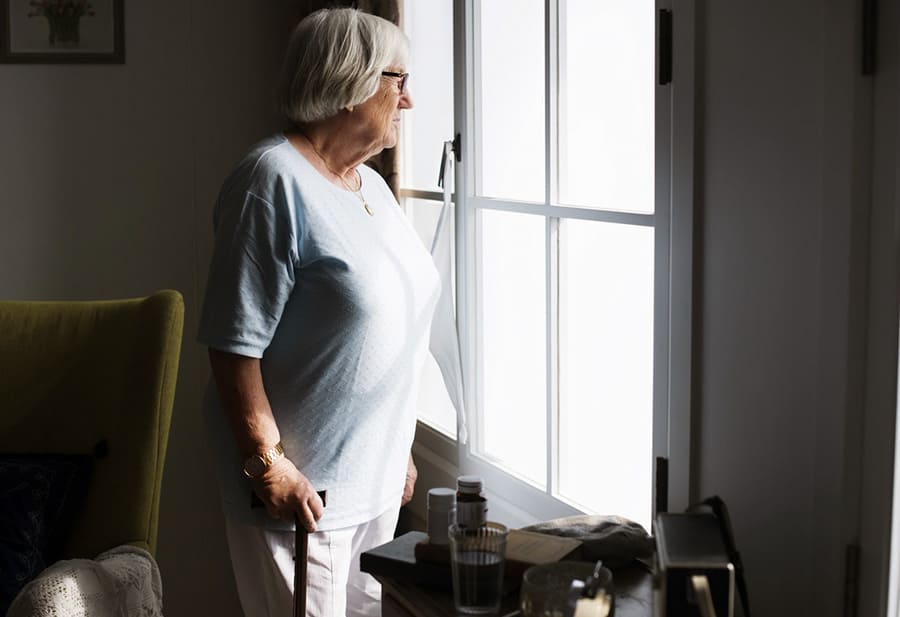Organisations call on Matt Hancock to “increase funding for home adaptations in Budget 2020”
A consortium of over 20 leading national organisations has urged Matt Hancock, Secretary of State for Health and Social Care, to increase the level of Disabled Facilities Grant (DFG) funding.
A letter from Sue Adams OBE, Chair of the Home Adaptations Consortium, has called on the Secretary of State to address the funding available for home adaptations, emphasising how an “accessible, adapted home can transform the lives of older and disabled people.”
Highlighting the health, social and economic benefits of home adaptations, the call comes ahead of the March 2020 Budget – the first budget of the new Government.
During the election campaign, Prime Minister Boris Johnson promised to reveal a revolutionary plan to tackle the UK’s growing social care crisis, however, has yet to unveil a blueprint for how to address the problem.
According to the Home Adaptations Consortium, whose members include Age UK, the British Healthcare Trades Association, Care & Repair England and the Royal College of Occupational Therapists, DFGs are an effective way to improve independent living and reduce the strain on the stretched social care system.
The letter also emphasises that whilst last year’s 8 per cent DFG funding increase was welcome, more is needed to meet the rising demand for essential home adaptations across the country.
At the end of 2018, a comprehensive review of the DFG commissioned by the Government resulted in 45 key changes to be recommended, including VAT rules adjusted for major adaptations, a national accreditation scheme for tradespeople, the establishment of housing & health partnership boards.
Read the Home Adaptations Consortium’s full letter below:
Dear Minister,
Congratulations on your re-appointment as Secretary of State. Your personal commitment to prevention and integration across health, social care and housing is greatly appreciated.
We are writing on behalf of older and disabled people to urge you to support an increase in funding for the Disabled Facilities Grant in the forthcoming March 2020 Budget.
The Disabled Facilities Grant (DFG) provides vital support for low income older and disabled people to adapt their homes to better meet their needs. DFG enables people to remain living independently at home for longer, reducing health risks, delaying or preventing care needs, and helping carers to care.
Adaptations are cost-effective. The London School of Economics estimated that for every £1 that is spent on DFGs returns over £2 in health and social care savings and quality of life gains. Conversely, delays in adapting homes place extra burdens on health and care services, as well as putting individuals and carers at risk. The Building Research Establishment estimated that the cost to society from leaving poor housing unimproved was £18.6 billion per year
An accessible, adapted home can transform the lives of older and disabled people. A recent report from Versus Arthritis found that 95% of people with arthritis who used an aid or adaptation felt they had had a positive impact on their quality of life, and 80% said that they had helped them to maintain their independence.
Many local councils are implementing the DFG admirably at a local level. 85% of councils have adopted local policies that allow them to be more flexible and effective when delivering the DFG. However, with an ageing housing stock, higher numbers of people over 65, an increase in working age adults with long term disabilities, and more families with disabled children, the need for essential home adaptations rises, and so does the required level of funding. Whilst last year’s 8% increase to the DFG budget was most welcome, it still falls short of meeting this need.
Home adaptations are recognised as vitally important in the Prevention Green Paper, whilst making homes ‘age-friendly’ is a key aspect of the Industrial Strategy ‘Healthy Ageing’ Grand Challenge. Given that 80% of the homes people will live in by 2050 already exist, adaptations are an important part of action to address this Grand Challenge, presenting not only a business innovation opportunity but also reducing health inequalities.
The March budget presents the opportunity to achieve key government objectives through increasing funding for the Disabled Facilities Grant, which in turn will allow local authorities to help more people to live safely, independently and well in their own homes. We very much hope that you will seize this opportunity.
Yours sincerely,
Sue Adams, OBE Chair of the Home Adaptations Consortium



